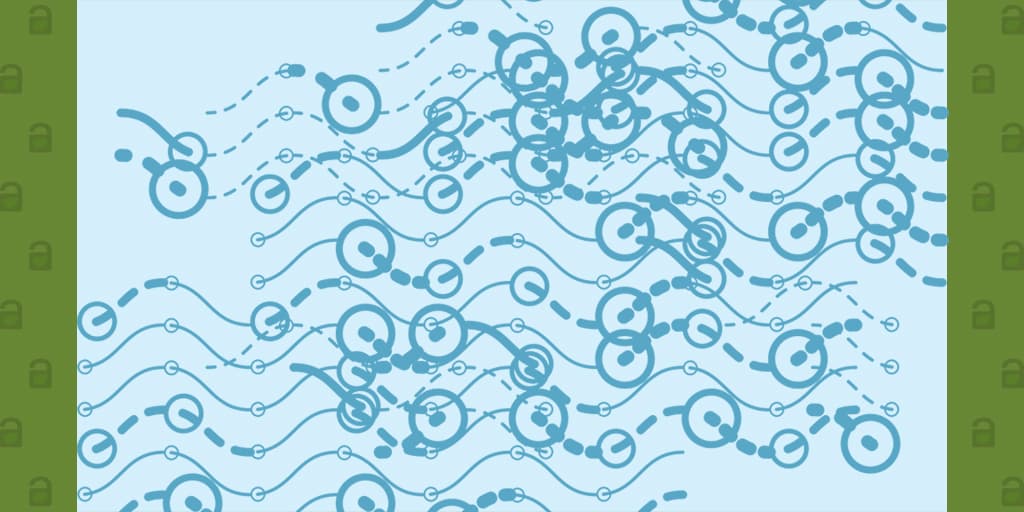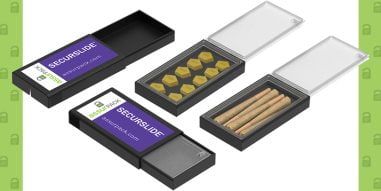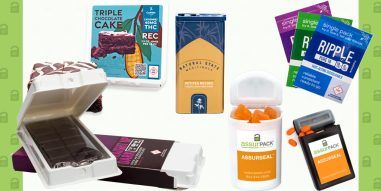How Plastic-Eating Bacteria Are Transforming AssurPack®
April 18, 2022
Most plastic takes hundreds of years to break down or “biodegrade.”
Beverage bottles, discarded electronics, and yes — cannabis packages — fill the world’s landfills and oceans at a rate of over 600 billion pounds per year. Whoa.
That’s why we’re working to make your cannabis packaging safer and more sustainable — for consumers who need to keep kids safe and for the environment that supports our lives and health.
We’re introducing a special plastic additive to some of our packages to make them biodegrade more quickly.
Even better, the biodegradation process could help generate electricity and power cars. Here’s how.
Why Add BioSphere® to Cannabis Packaging?
While we encourage the recycling and reuse of our packages, many still end up in landfills. And when they inevitably do, our new formulation will help them return to the Earth fast.
Biosphere®, which is marketed by a Portland-based firm, attracts microbes that are critical for the biodegradation of certain types of plastics. The microbes consume the plastic and help it break down centuries ahead of schedule.
How Does It Work?
Manufacturing technicians add a small amount of BioSphere® resin to our SecurSlide®, AssurSeal®, and the top lid of the AssurTin®. It only takes about 1%.
There’s no change to the look or function of the package until it reaches the landfill.
But when it’s exposed to those landfill conditions — environments rich in microbes and hydrocarbon gasses — the plastic attracts more than 600 types of hungry microbes.
They consume the plastic posthaste, leaving little more than carbon and water behind in the landfill. The remainder of the plastic converts into methane and other gasses. (Most plastics do as they biodegrade.)
How Does BioSphere Help Power Cars?
So, as the microbes consume plastic, they produce landfill gas (LFG). If harvested, that LFG — which is mostly methane — can serve the purpose of natural gas from any other source. That means it can produce electricity, power natural-gas vehicles, or heat homes.
Right now, the Environmental Protection Agency (EPA) tells us that 548 landfills in the US are harvesting LFG and using it for the purposes noted above, effectively turning trash into energy.
Managing methane is important, too, because it’s a powerful greenhouse gas. The EPA has initiated the Landfill Methane Outreach Program (LMOP) that’s helped local landfills install underground systems to harvest about 69% of our country’s LFG emissions.
Does BioSphere Make the Package Weaker?
BioSphere® does not change the plastic’s performance in any way. The material resists UV light, moisture, and temperature just as it did before the 1% addition. And it’s just as workable during manufacturing, letting us craft designs with tight, precise seals.
The new designs with BioSphere® are rated as food-safe and will recycle just as easily as their original. The plastic melts and forms into new products exactly like virgin resin.
You’d think that a cannabis package that biodegrades quicker would break quicker, too. But the BioSphere® additive affects microbial activity — something that doesn’t start unless the plastic enters a landfill.
It’s the same package, only better.
Why Not Use Compostable Plastics?
We’d love to implement compostable and plant-based plastics but can’t bring ourselves to do it for two reasons.
The first reason is compostable plastics typically aren’t. They don’t compost in the backyard garden; they require special facilities. These plastics only biodegrade when processed at an industrial facility — of which few exist.
The second reason is quality. The quality of plant-based plastics isn’t acceptable to our designers.
Hemp-based plastics are cool but don’t have the same strength, moisture resistance, or manufacturing properties.
We offer the SecurSlide® BP as an alternative. The package is 50% wheat resin and 50% conventional plastic for the perfect mix of strength and sustainability — that’s still recyclable. Wheat resin, which comes from food processing waste, is 100% renewable and effectively cuts the SecurSlide’s carbon footprint in half. Learn more here.
Which Packages Will Have the New BioSphere® Additive?
The AssurTin® — our upright mint tin — will feature BioSphere for the non-metallic portion of the package, namely its easy-opening lid.
We recently revamped the AssurTin® lid design to be more airtight and operable with one hand. That lets disabled and medically vulnerable patients access their medicines on their own.
See the AssurTin® with BioSphere® here.
SecurSlide® will also get a BioSphere® supplement. Its matchbox design is one of our most popular. It comes in a variety of sizes, making it the perfect edibles packaging, vape cart packaging, and concentrates packaging — all at the same time.
Check out the SecurSlide® with BioSphere®.
And AssurSeal® — the industry’s tightest-sealing cannabis package — will also get a sustainability boost from BioSphere®. The new AssurSeal® will protect freshness just like the original because the plastic retains its structural integrity.
Re-introducing AssurSeal® (with BioSphere®).
The Real Goal of Sustainable Packaging
BioSphere® helps our packages biodegrade, but we hope they never end up in a landfill. All the packages listed above recycle or have recyclable components. Recycling is one of the best ways to be more sustainable.
But recycling takes energy, and reusing cannabis packaging is one step better. When customers reuse your package, that’s the ultimate in sustainability — and they might just keep your logo around too.
To get samples of our new packages with BioSphere®, contact a representative today.




